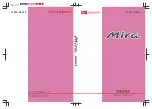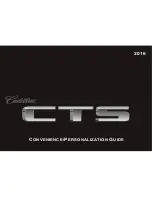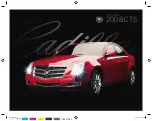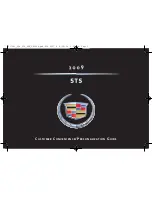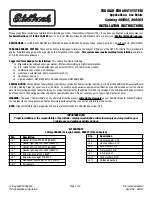
Fuel consumption
Ethanol (E85) contains less energy per gallon
than gasoline. To ensure that the engine
performance with ethanol (E85) is similar to
that when using gasoline, the engine must
burn more ethanol. As a result, it is to be
expected that fuel consumption will increase
when using ethanol fuel (E85), compared to
gasoline.
Maintenance
Inform your authorized Mercedes-Benz
Center that you are operating or have
operated the vehicle with ethanol (E85).
Low outside temperatures
Starting times may significantly increase at
temperatures below 32 ‡ (0 † ). At low
outside temperatures, Mercedes-Benz
recommends the use of an auxiliary heater.
For further information, consult an authorized
Mercedes-Benz Center.
Rough idling may also be experienced at low
outside temperatures until the engine is fully
warmed up.
Ethanol (E85) is unsuitable for use if outside
temperatures fall below 14 ‡ (-10 † ).
High outside temperatures
At outside temperatures above 95 ‡ (35 † ),
the time required for the starting procedure
may increase and be accompanied by rough
idling following the start.
Fuel requirements
Use only premium-grade unleaded gasoline.
The octane number should be at least 91.
Details can be found on the gas pump. The
octane number is the average value of the
Research Octane Number (RON) and the
Motor Octane Number (MON): (RON +
MON) / 2, also known as knock resistance.
Reformulated gasoline (RFG) and/or
unleaded gasoline with additives can be used.
However, the concentration of additives in
the fuel must be less than 10%, e.g.
R
Ethanol
R
TAME
R
ETBE
R
IPA
R
TBA
For MTBE, the concentration should not
exceed 15%.
The concentration of methanol in gasoline
including other additives must not exceed 3%.
Using mixtures of methanol and ethanol is not
permitted. Gasohol, a mixture of 10% ethanol
and 90% unleaded gasoline, can be used.
All of these mix fuels must fulfill the fuel
requirements, e.g.:
R
knock resistance
R
boiling point
R
vapor pressure
Additives in gasoline
One of the main problems of poor fuel quality
is the forming of deposits that are created
during the gasoline combustion process.
Mercedes-Benz recommends that you use
fuel brands that have the additives.
Deposits may form if you use fuels without
additives over a longer period of time. These
deposits are most likely to form on the inlet
valves and in the combustion chamber.
This could lead to engine problems, e.g.:
R
longer engine warm-up phase
R
uneven idle
R
engine noise
R
misfiring
R
loss of power
Carbon deposits may form if the availability
of gasoline with relevant additives is
insufficient (in certain regions). In this case,
Mercedes-Benz recommends the use of
348
Service products and capacities
Technical data
Summary of Contents for 2012C-Class Sedan
Page 1: ...C Class Operator s Manual I n f o r ma t i o nP r o v i d e db y...
Page 4: ...I n f o r ma t i o nP r o v i d e db y...
Page 70: ...68 I n f o r ma t i o nP r o v i d e db y...
Page 92: ...90 I n f o r ma t i o nP r o v i d e db y...
Page 122: ...120 I n f o r ma t i o nP r o v i d e db y...
Page 136: ...134 I n f o r ma t i o nP r o v i d e db y...
Page 254: ...252 I n f o r ma t i o nP r o v i d e db y...
Page 292: ...290 I n f o r ma t i o nP r o v i d e db y...
Page 310: ...308 I n f o r ma t i o nP r o v i d e db y...






















